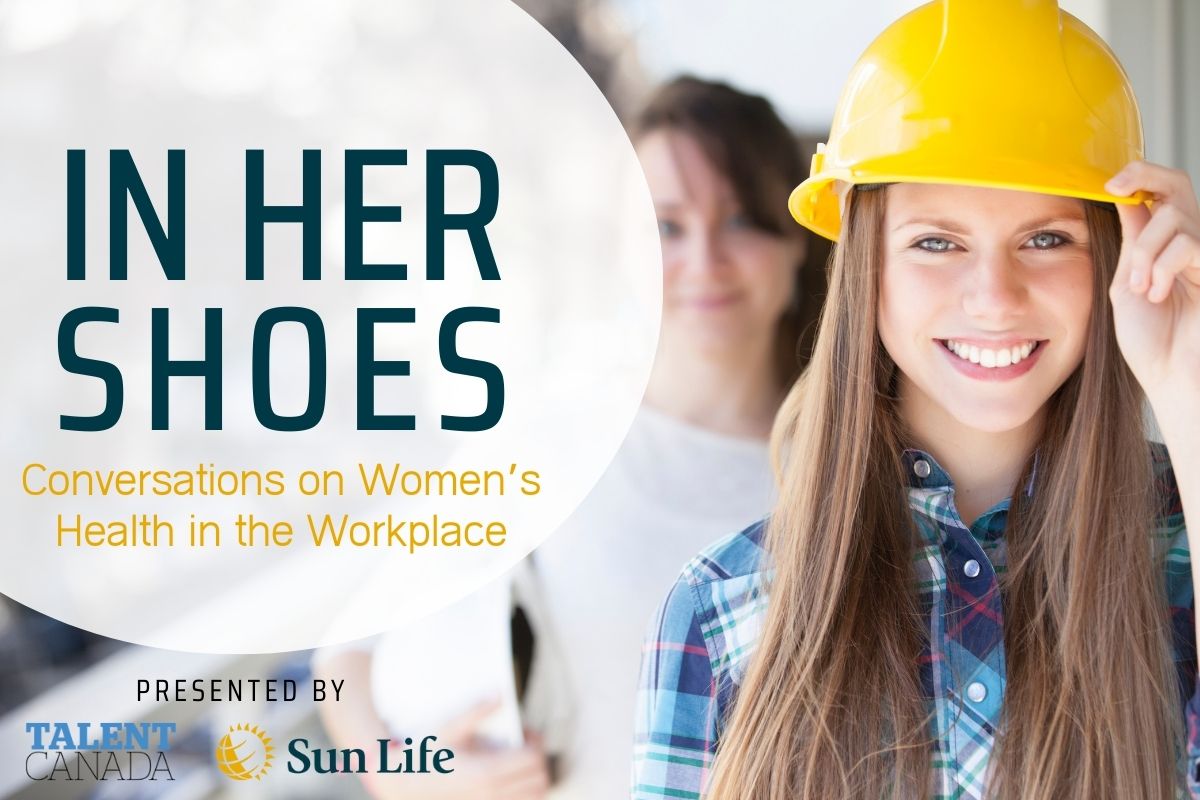

Features
Benefits & Pensions
Diversity & Inclusion
Male-dominated industries grapple with unique challenges in women’s health
October 17, 2023
By
Todd Humber

Editor’s note: This is the sixth in a multi-part series tackling women’s health issues in the workplace and what employers, HR and leaders can do to make a difference. It’s based on a special roundtable conversation held by Talent Canada, in partnership with Sun Life, that took a deep dive into the issue. View the special section.
In a recent panel discussion that brought together experts from various fields, the topic of unique considerations for women’s health in male-dominated industries was explored.
Experts on the panel, put together by Talent Canada in partnership with Sun Life, weighed in on everything from personal protective equipment (PPE) to period products, highlighting the vital role that “inclusive design” plays in these workplaces.
Carmen Klein, vice-president of HR and change management at Cadillac Fairview, started her career in engineering and operations management. She expressed how such industries often fall short in addressing the needs of female employees.
“There’s a tendency, when it’s a male-dominated industry, to want to design solutions and things to meet the average and not consider the experiences for the employees who are on the fringes,” Klein said.
She pointed out her own experience of having to wear gloves “five sizes too big” while working on the factory floor, emphasizing the importance of designing workplace solutions that meet the diverse needs of all employees. Klein added that inclusive design extends beyond personal protective equipment to benefits, workplace policies, and even “change room design” and “washrooms.”
Klein also recalled how in one facility, the availability of pads and tampons in washrooms made a significant difference for women employees.
“And that is such a big deal. When you’re working the property line like you do, that you’re when you work in the floor. You can go to all parts of that plant any one day you’re away from your office, you’re away from your locker, and just simply something small like that. Having that available? Makes a huge difference,” Klein said.
Garbage cans and backpacks
Janet Ko, president and co-founder of the Menopause Foundation of Canada, built on Klein’s comments with a specific example involving women in a mining community in Northern Ontario. She described how the absence of large enough garbage cans and available period products in washrooms forced women to carry a backpack to dispose of their waste.
“People question, what were they doing with their backpack in the washroom?” she said. “(They) feel embarrassed to do that and have people laugh at them.”
“It just means that we have to be knowledgeable and educated and aware, and recognize the benefits of doing so,” Ko said, underscoring the importance of inclusive design.
While much of the conversation centered on physical resources and spaces, panelist Krista Hogan suggested that male-dominated workplaces should also foster discussions about women’s health.
“Many male employees will have females who play a key role in their lives,” said Hogan, director, product solutions and group benefits at Sun Life. “Starting this dialogue on women’s health issues will help to educate them on what the women in their life experience and how they can support them.”
Watch the video
Krista Hogan, director, product solutions, at Sun Life, said that even employers with male-dominated workforces, who might not see the point of addressing women’s health topics, will see benefits of raising awareness.
“Many male employees will have females who play a key role in their lives. Whether it’s their partner, their parents, child, sibling,” said Hogan. “By starting this dialogue on women’s health issues, we’ll help to educate them on what the women in their life experience and how they can support them.”
This, in turn, leads to healthier relationships and might even improve their own mental health and productivity on the job, she said.
“Just because you have a lot of men working for you doesn’t mean that we shouldn’t be talking about women’s health too,” said Hogan.
Legal considerations
Stuart Rudner, an employment lawyer and mediator and founder of Rudner Law, highlighted the legal aspects that employers in such industries should consider, particularly regarding discrimination or harassment.
“Supervisors and managers need to know how to respond to complaints or even potential concerns about harassment and discrimination,” he said.
Rudner also called for a genuine effort to provide equal opportunities for women in these workplaces.
“It’s one thing to say you’re an equal opportunity employer, et cetera, but it’s another thing to actually walk the walk,” he said. “There’s far too many of these workplaces that we hear of where women are actively or passively discouraged from pursuing opportunities. And it’s made known that they want a man team lead or supervisor or whatever the role is. It’s really important there be a real effort made to ensure that there is equal opportunity, even if women are a minority within that workplace.”
Tiana Field-Ridley, senior program manager at the Mental Health Commission of Canada, rounded out the conversation by stressing the importance of advocacy.
“Be that advocates, and that voice for women,” Field-Ridley said, pointing out the need for ongoing awareness and training as part of a broader plan within organizations. “Be that one voice in the room saying, ‘That is inappropriate. That is not what we do.’ Be that person who is helping.”
Print this page